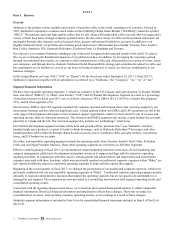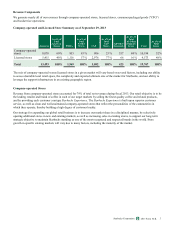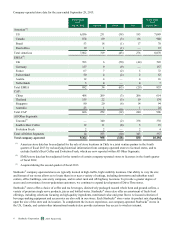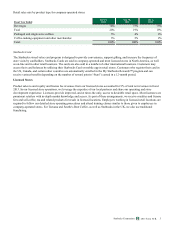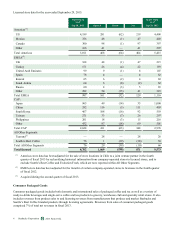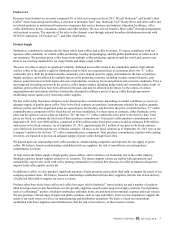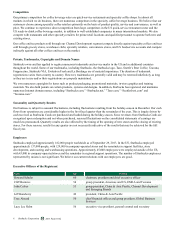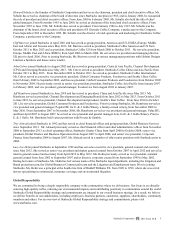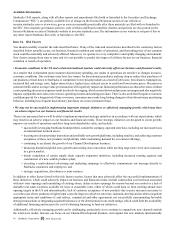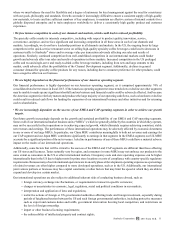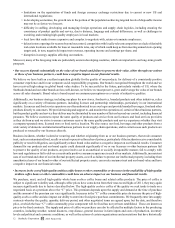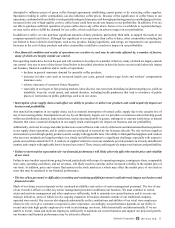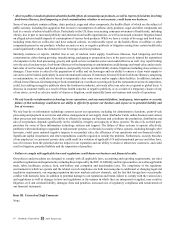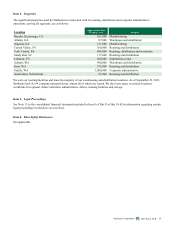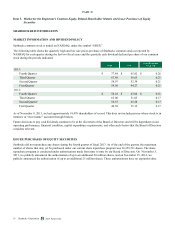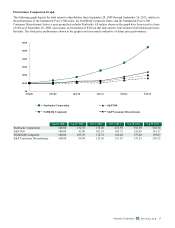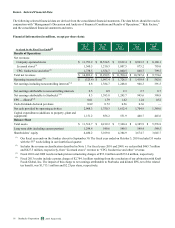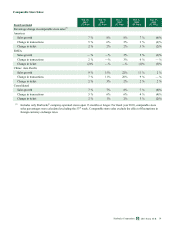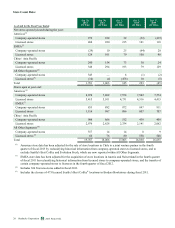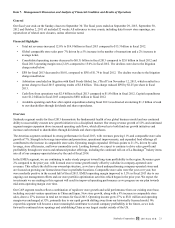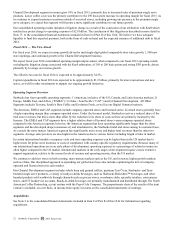Starbucks 2013 Annual Report Download - page 20
Download and view the complete annual report
Please find page 20 of the 2013 Starbucks annual report below. You can navigate through the pages in the report by either clicking on the pages listed below, or by using the keyword search tool below to find specific information within the annual report.
12
• limitations on the repatriation of funds and foreign currency exchange restrictions due to current or new US and
international regulations;
• in developing economies, the growth rate in the portion of the population achieving targeted levels of disposable income
may not be as fast as we forecast;
• difficulty in staffing, developing and managing foreign operations and supply chain logistics, including ensuring the
consistency of product quality and service, due to distance, language and cultural differences, as well as challenges in
recruiting and retaining high quality employees in local markets;
• local laws that make it more expensive and complex to negotiate with, retain or terminate employees;
• delays in store openings for reasons beyond our control, competition with locally relevant competitors or a lack of desirable
real estate locations available for lease at reasonable rates, any of which could keep us from meeting annual store opening
targets and, in turn, negatively impact net revenues, operating income and earnings per share; and
• disruption in energy supplies affecting our markets.
Moreover, many of the foregoing risks are particularly acute in developing countries, which are important to our long-term growth
prospects.
• Our success depends substantially on the value of our brands and failure to preserve their value, either through our actions
or those of our business partners, could have a negative impact on our financial results.
We believe we have built an excellent reputation globally for the quality of our products, for delivery of a consistently positive
consumer experience and for our corporate social responsibility programs. Our brand is recognized throughout the world and we
have received high ratings in global brand value studies. To be successful in the future, particularly outside of US, where the
Starbucks brand and our other brands are less well-known, we believe we must preserve, grow and leverage the value of our brands
across all sales channels. Brand value is based in part on consumer perceptions on a variety of subjective qualities.
Additionally, our business strategy, including our plans for new stores, foodservice, branded products and other initiatives, relies
significantly on a variety of business partners, including licensee and partnership relationships, particularly in our international
markets. Licensees and food service operators are often authorized to use our logos and provide branded beverages, food and other
products directly to customers. We provide training and support to, and monitor the operations of, certain of these business partners,
but the product quality and service they deliver may be diminished by any number of factors beyond our control, including financial
pressures. We believe customers expect the same quality of products and service from our licensees and food services providers
as they do from us and we strive to ensure customers receive the same quality products and service experience whether they visit
a company-operated store, licensed store or food service location. We also source our food, beverage and other products from a
wide variety of domestic and international business partners in our supply chain operations, and in certain cases such products are
produced or sourced by our licensees directly.
Business incidents, whether isolated or recurring and whether originating from us or our business partners, that erode consumer
trust, such as contaminated food, recalls or actual or perceived breaches of privacy, particularly if the incidents receive considerable
publicity or result in litigation, can significantly reduce brand value and have a negative impact on our financial results. Consumer
demand for our products and our brand equity could diminish significantly if we or our licensees or other business partners fail
to preserve the quality of our products, are perceived to act in an unethical or socially irresponsible manner, fail to comply with
laws and regulations or fail to deliver a consistently positive consumer experience in each of our markets. Additionally, inconsistent
uses of our brand and other of our intellectual property assets, as well as failure to protect our intellectual property, including from
unauthorized uses of our brand or other of our intellectual property assets, can erode consumer trust and our brand value and have
a negative impact on our financial results.
• Increases in the cost of high-quality arabica coffee beans or other commodities or decreases in the availability of high-quality
arabica coffee beans or other commodities could have an adverse impact on our business and financial results.
We purchase, roast, and sell high-quality whole bean arabica coffee beans and related coffee products. The price of coffee is
subject to significant volatility and, although coffee prices have come down from their near-record highs of 2011, they may again
increase significantly due to factors described below. The high-quality arabica coffee of the quality we seek tends to trade on a
negotiated basis at a premium above the “C” price. This premium depends upon the supply and demand at the time of purchase
and the amount of the premium can vary significantly. Increases in the “C” coffee commodity price do increase the price of high-
quality arabica coffee and also impact our ability to enter into fixed-price purchase commitments. We frequently enter into supply
contracts whereby the quality, quantity, delivery period, and other negotiated terms are agreed upon, but the date, and therefore
price, at which the base “C” coffee commodity price component will be fixed has not yet been established. These are known as
price-to-be-fixed contracts. The supply and price of coffee we purchase can also be affected by multiple factors in the producing
countries, including weather, natural disasters, crop disease, general increase in farm inputs and costs of production, inventory
levels and political and economic conditions, as well as the actions of certain organizations and associations that have historically
2013 10-K
Starbucks Corporation Form


